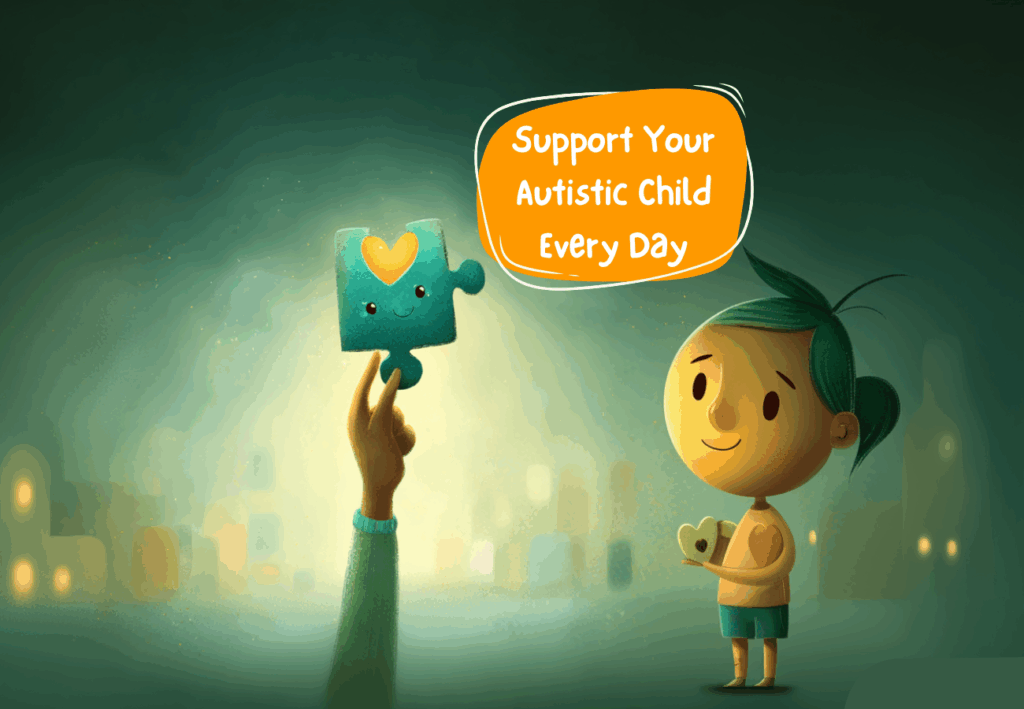Practical Ways to Support Your Autistic Child Every Day

Autism is something many people still don’t fully understand, and that lack of understanding often leads to unfair assumptions. Some see certain behaviors as bad manners or poor parenting, when in reality, autism is a neurological condition that affects how a person communicates, learns, and experiences the world.
For parents, receiving a diagnosis can feel overwhelming at first—but it’s also a powerful step forward. It means you can finally access the right help, resources, and understanding your child needs to thrive. With patience, empathy, and the right tools, you can help your child feel safe, confident, and understood every single day.
If you’re a parent learning how to support your autistic child, there are ways to make life easier for both of you while helping your child feel safe, confident, and understood.
1. Arm Yourself with the Right Information
Knowledge truly is power when it comes to parenting a child with autism. The more you understand how your child’s mind works, the better you can support them.
Many children with autism process the world differently—and that’s not a bad thing. In fact, some of the most brilliant minds in history, like Bill Gates and Albert Einstein, are believed to have been on the spectrum.
Autism doesn’t mean your child will fall behind; it simply means they learn and communicate in their own way. Embracing that difference changes how you respond and adapt.
If you’re looking to learn more, resources like MetroEHS offer guides, therapy programs, and educational tools to support both parents and children at every stage of development.
2. Create a Sensory-Friendly Space
Children with autism often experience the world through heightened senses—sounds might seem louder, lights brighter, and certain textures uncomfortable. These sensitivities aren’t something they can “just get used to,” but you can help make their environment more soothing.
Create a sensory-friendly space where your child can retreat and feel calm when things get overwhelming. You don’t need fancy equipment—a few small changes can make a big difference:
- Use soft lighting instead of harsh overhead lamps.
- Add cozy textures, like a weighted blanket or soft rug.
- Play gentle background sounds or calming music.
This special spot gives them control, comfort, and a sense of safety—something every child deserves.
3. Listen to Their Fears with Compassion
Sometimes, your child may develop fears that seem irrational—but for them, those fears are very real. Often, they stem from past sensory experiences that felt distressing or overwhelming.
Instead of brushing these fears aside, listen and validate their feelings. Say things like, “I know that noise felt really loud. Let’s find a quiet place together.” By showing understanding, you help them feel seen and supported.
Over time, this patient approach helps your child build coping skills—and the confidence to face challenging situations with less fear.
4. Encourage Independence, One Step at a Time
It’s natural to want to protect your child from the world, but independence is a vital part of growth. Children with autism may find social interactions difficult, yet small, structured opportunities can help them build self-esteem and confidence.
Try gentle ways to encourage independence:
- Let them handle small tasks (like choosing their clothes or setting the table).
- Offer praise for effort, not just success.
- Encourage play that promotes decision-making and problem-solving.
Each success—no matter how small—teaches them that they are capable, strong, and safe even when you’re not right beside them.
5. Celebrate Their Strengths
Every child on the autism spectrum has unique talents and interests. Some excel at music, math, art, or memory-based games. Focusing on these strengths helps build a sense of purpose and joy.
You can nurture these gifts through positive affirmations and creative storytelling tools like My Superpower Books, which help kids recognize their inner strengths and learn valuable social-emotional skills like empathy and self-confidence.
Parenting a child with autism takes patience, flexibility, and endless love. But it also brings moments of deep pride, laughter, and joy that words can hardly describe.
By learning, adapting, and meeting your child where they are, you’re giving them the greatest gift—the freedom to be themselves.
Keep celebrating their progress, share your story with other parents, and remember: you’re doing an amazing job.
If you found this article helpful, share it with another parent who might need encouragement today.
More articles

25+ Best Halloween Books for Kids (Read-Alouds, Picture Books & Chapter Books)
Halloween means costumes, pumpkins, and just the right amount of spooky fun. But beyond trick-or-treating, one of the best ways to celebrate is with a cozy stack of Halloween books for kids. Whether your little one loves silly stories about pumpkins, magical witches, or slightly spooky mysteries, there’s something here for every age group—from toddlers […]

Why Photo Calendars Make Great Learning Tools for Children
You know that moment when you’re trying to explain to your five-year-old why they can’t go to grandma’s house “tomorrow” when grandma’s visit is actually next week? The blank stare you get tells you everything – abstract time concepts might as well be quantum physics to young minds. I’ve been there more times than I […]

Gifts for Kindergarten Graduation: Celebrate Your Little Graduate
Kindergarten graduation is a special milestone that marks the beginning of a child’s exciting journey through school. Choosing the perfect gifts for kindergarten graduation can make this moment even more memorable, showing appreciation for your little one’s hard work and growth. From playful keepsakes to meaningful learning tools, the right gift can spark joy and […]



